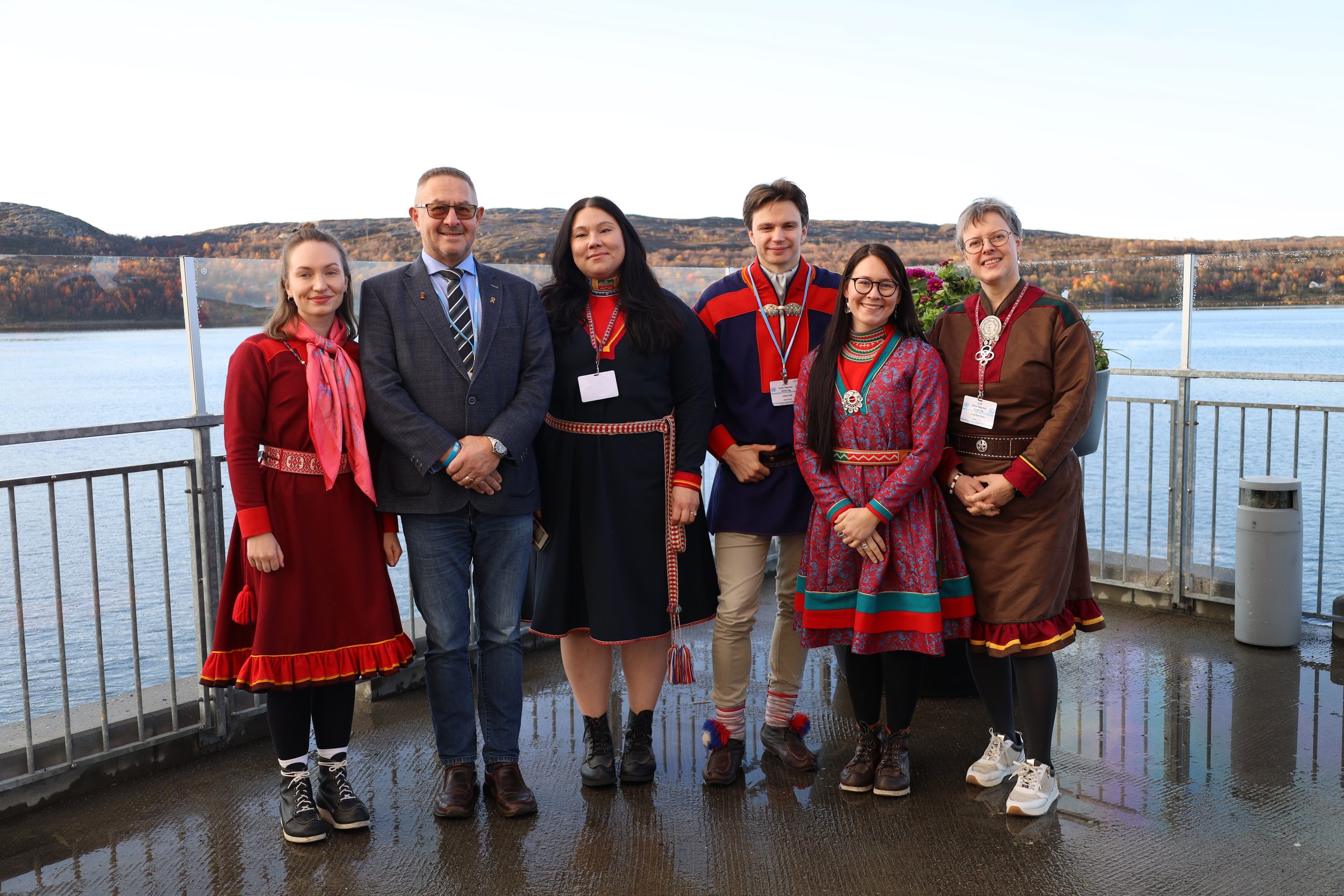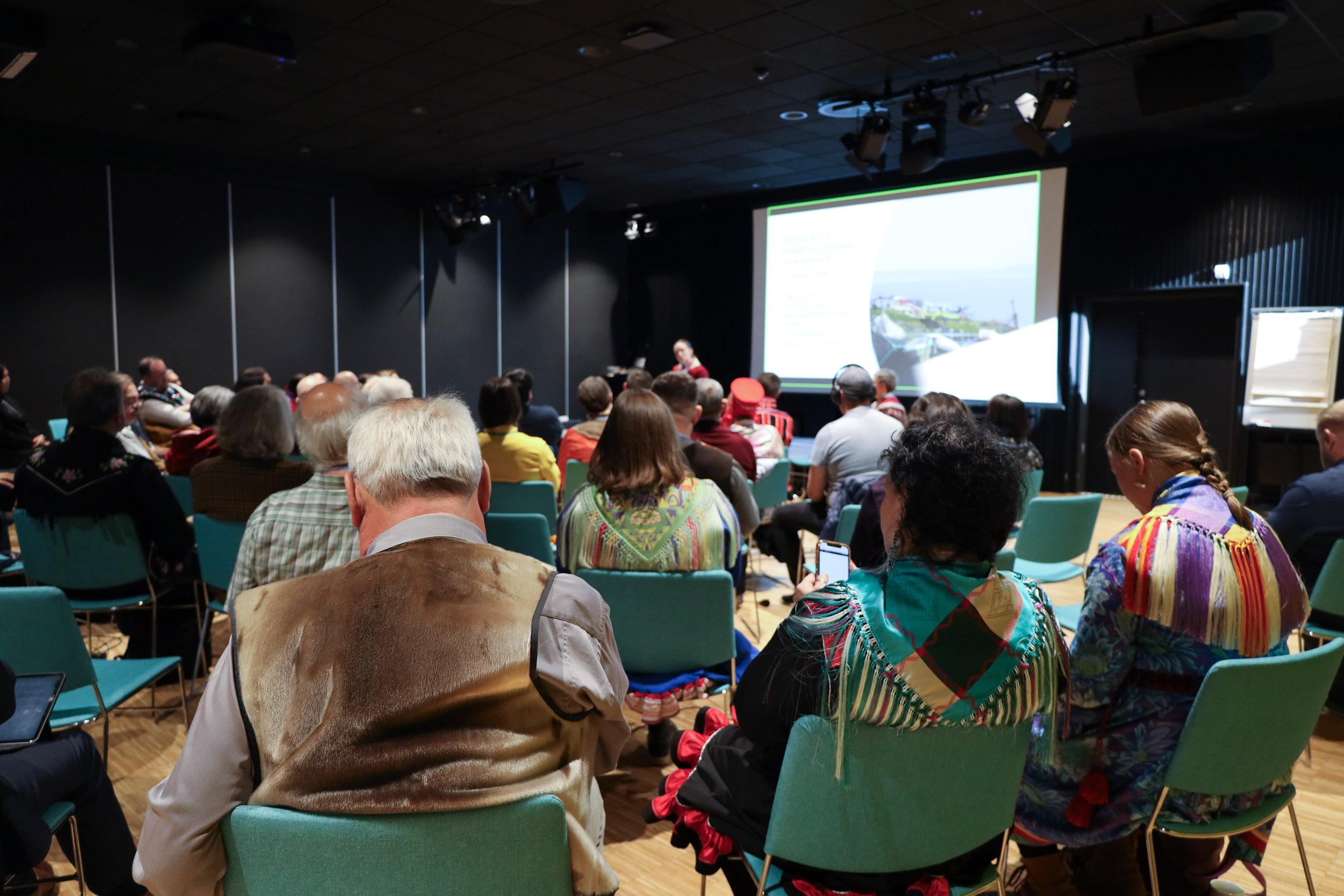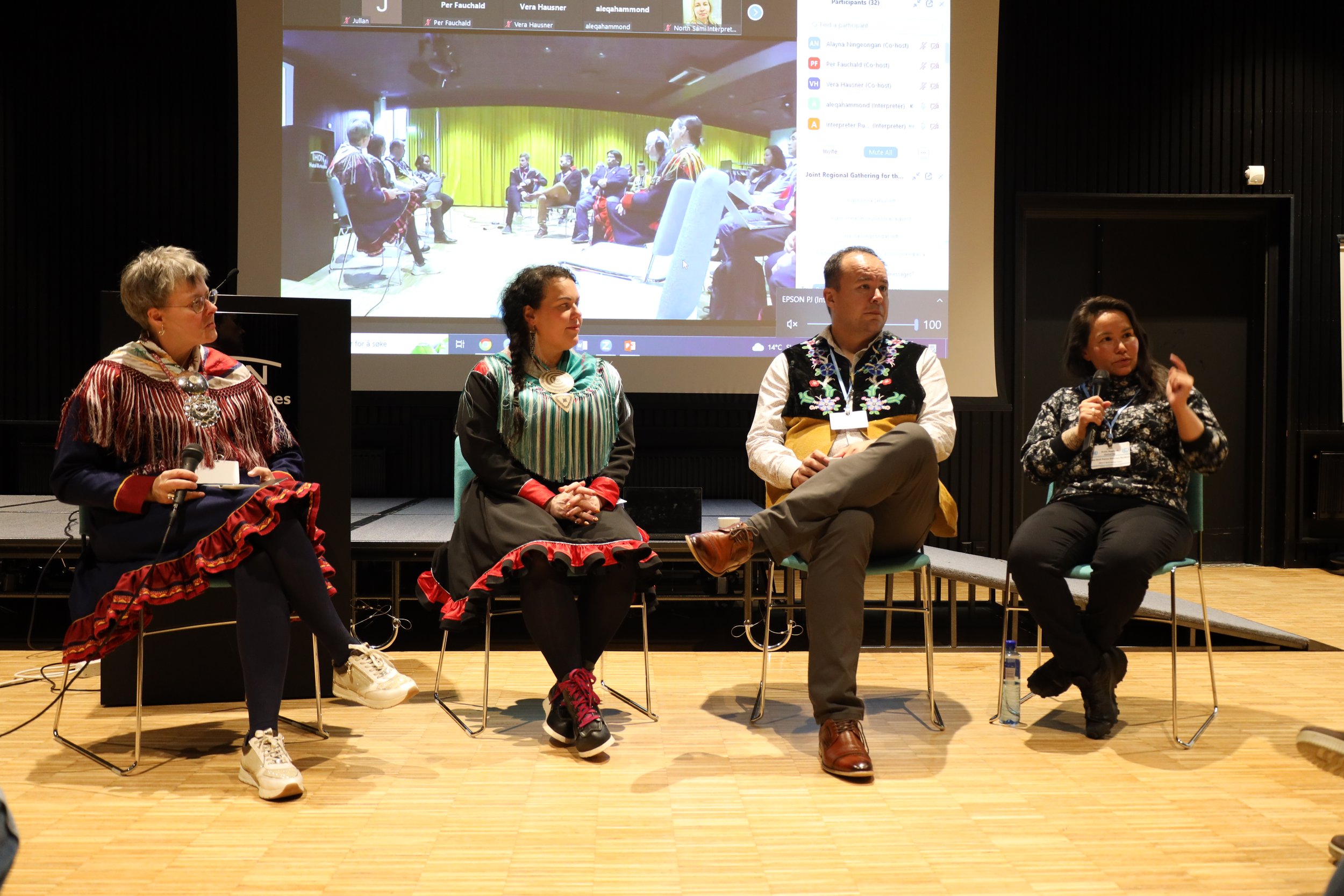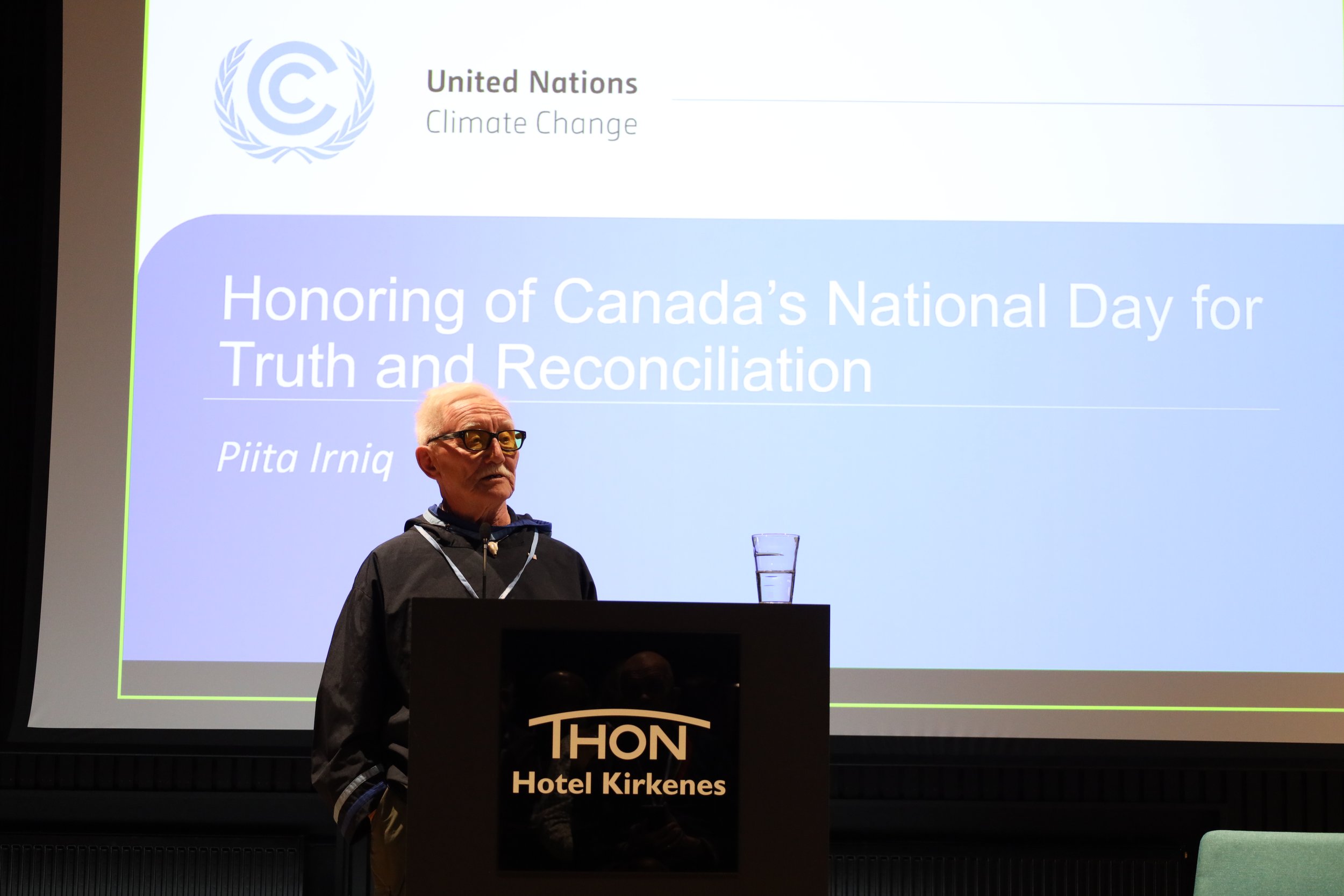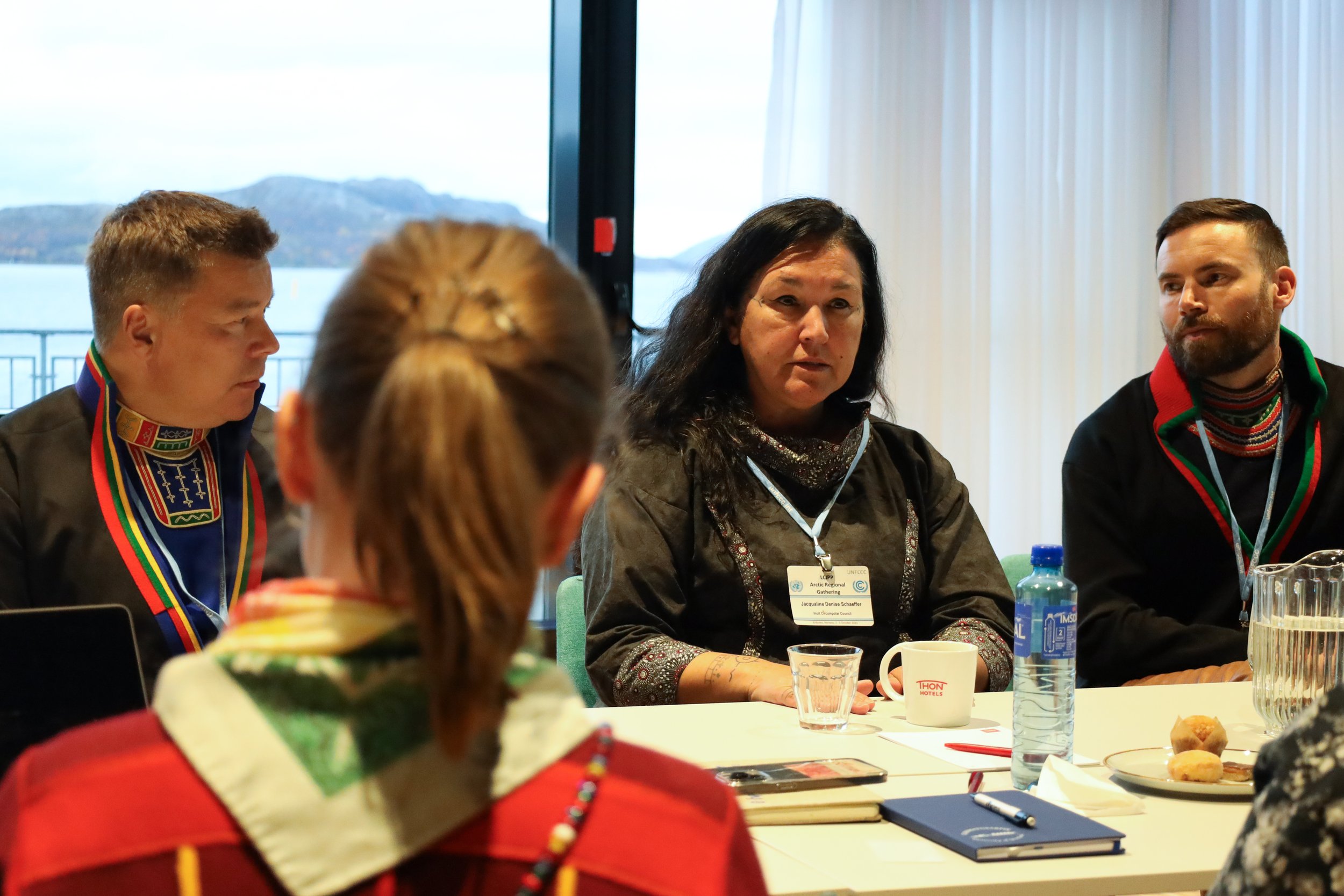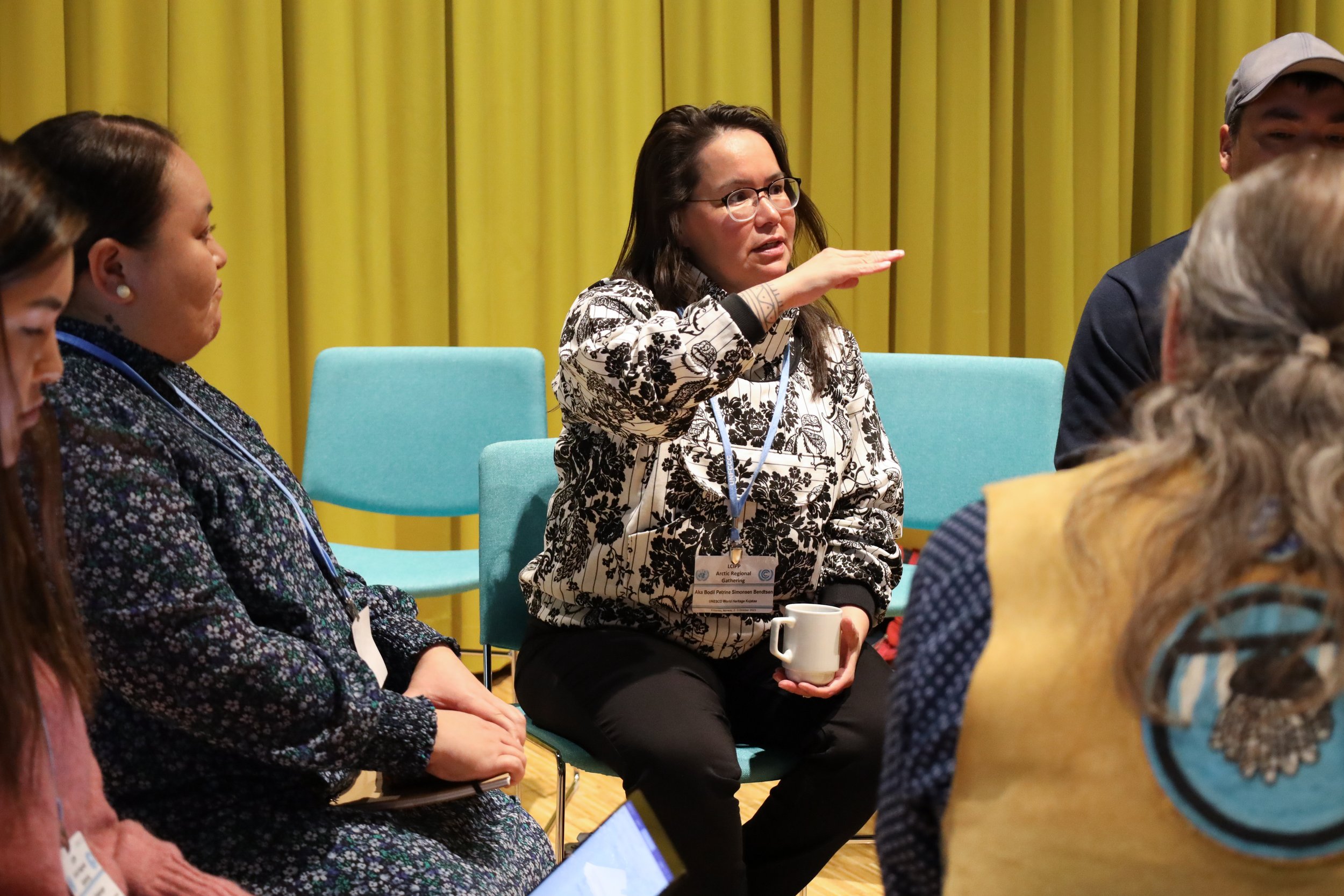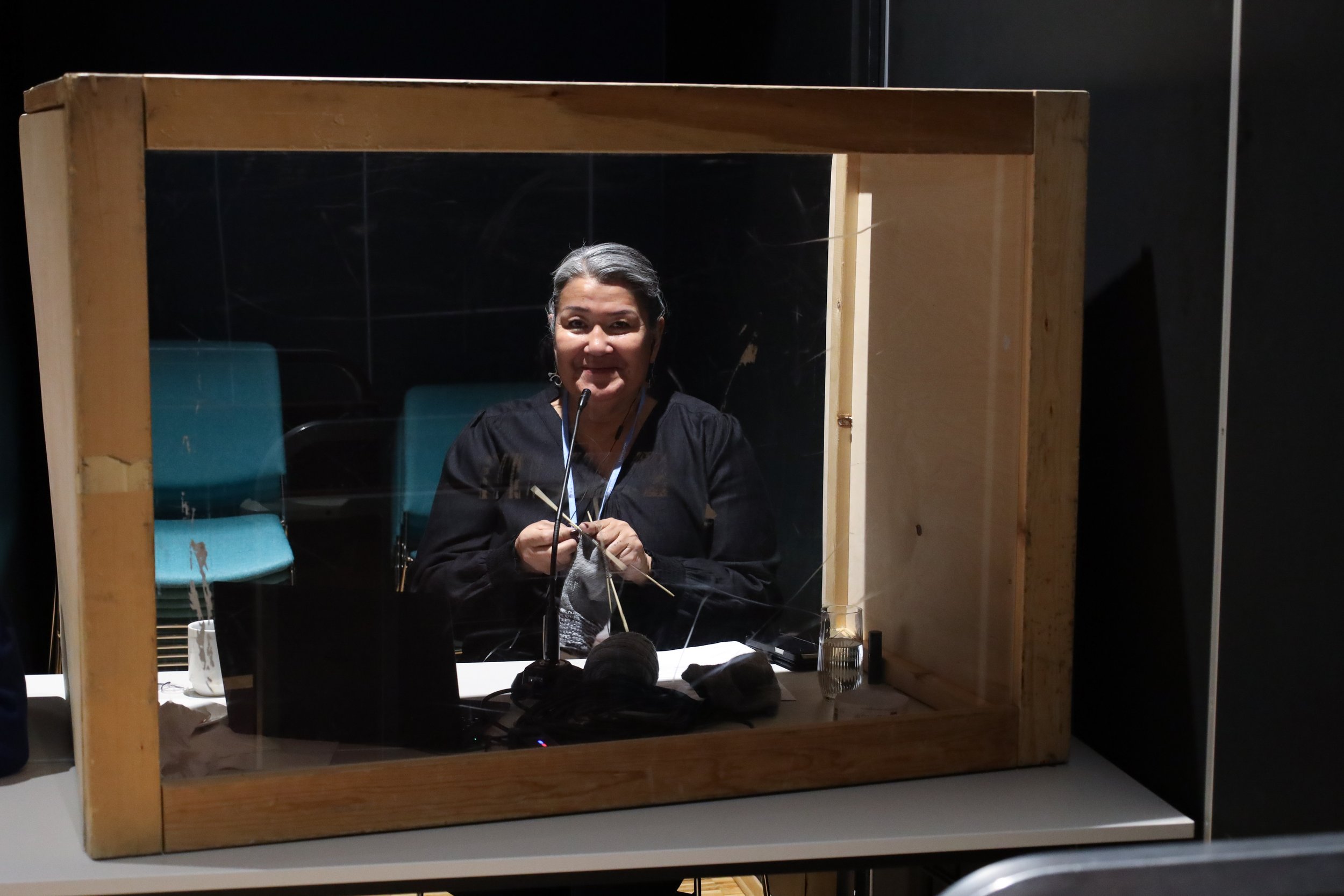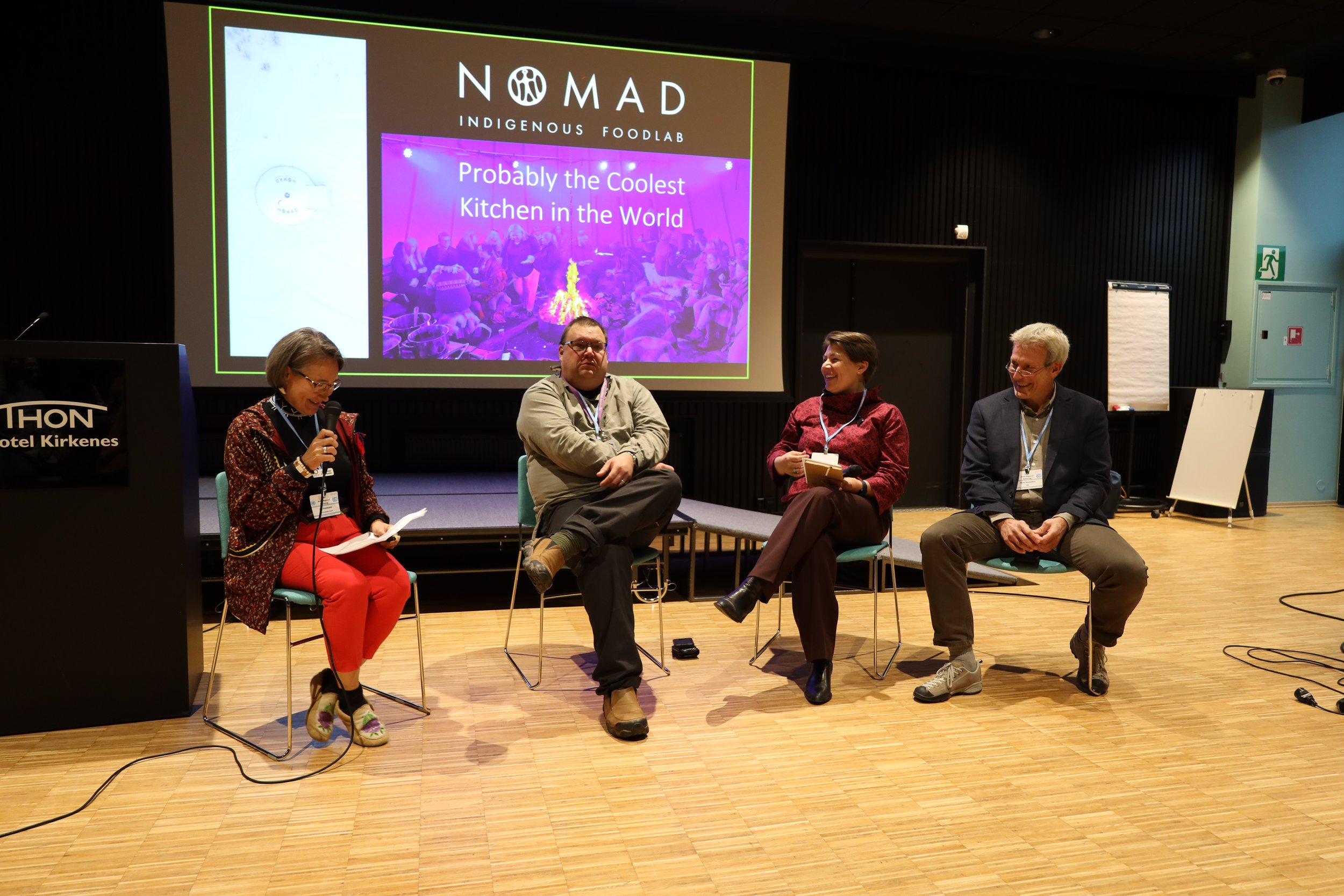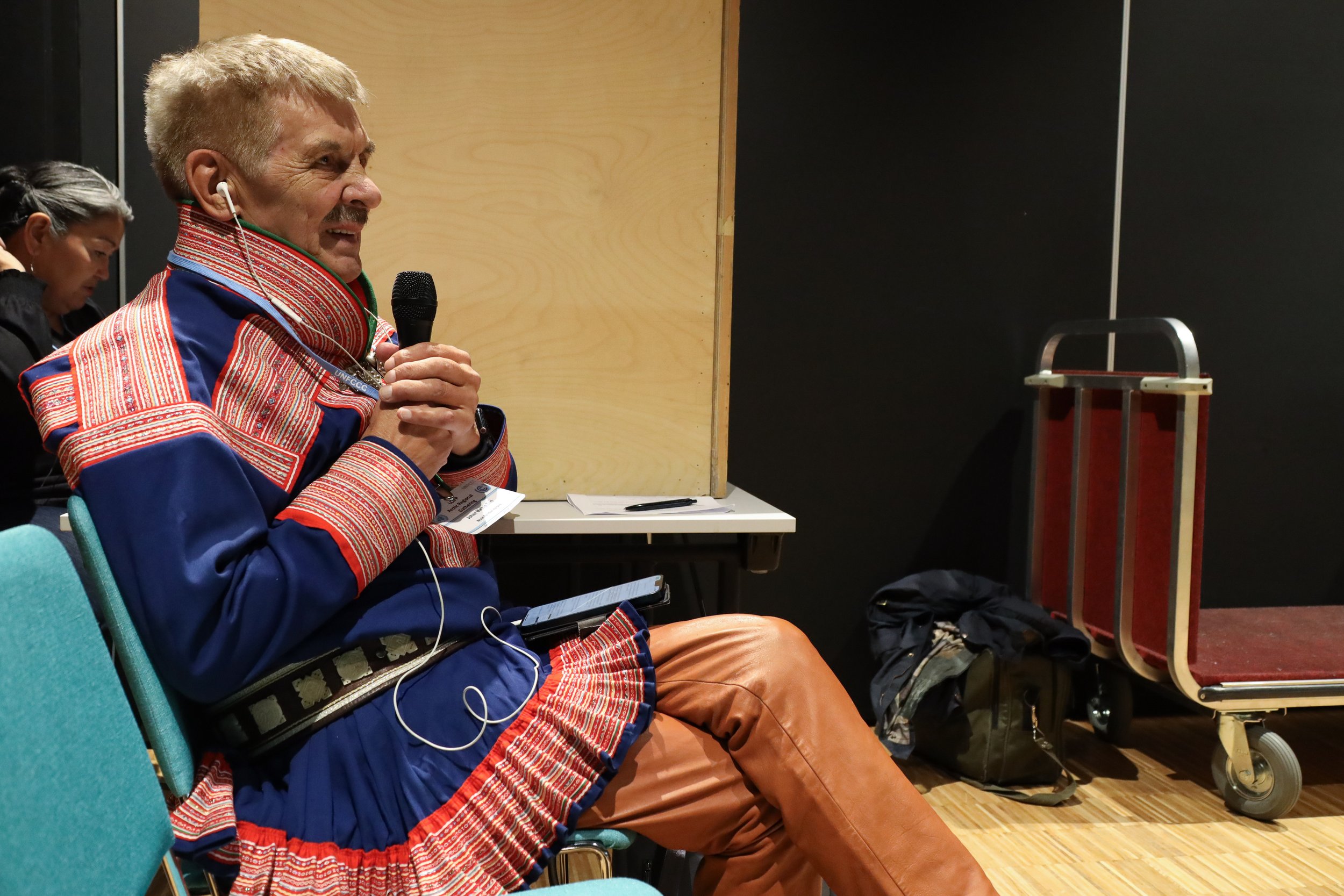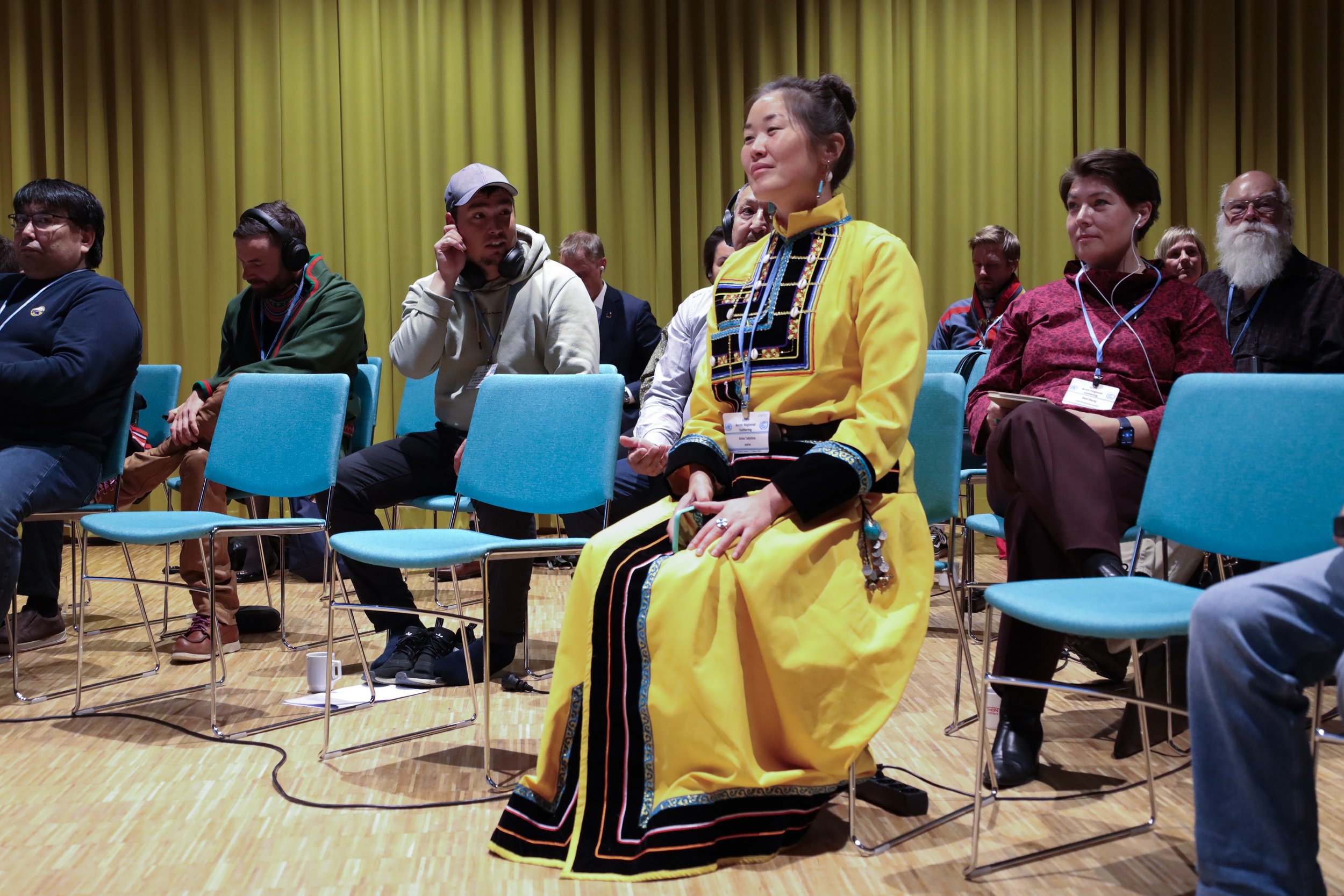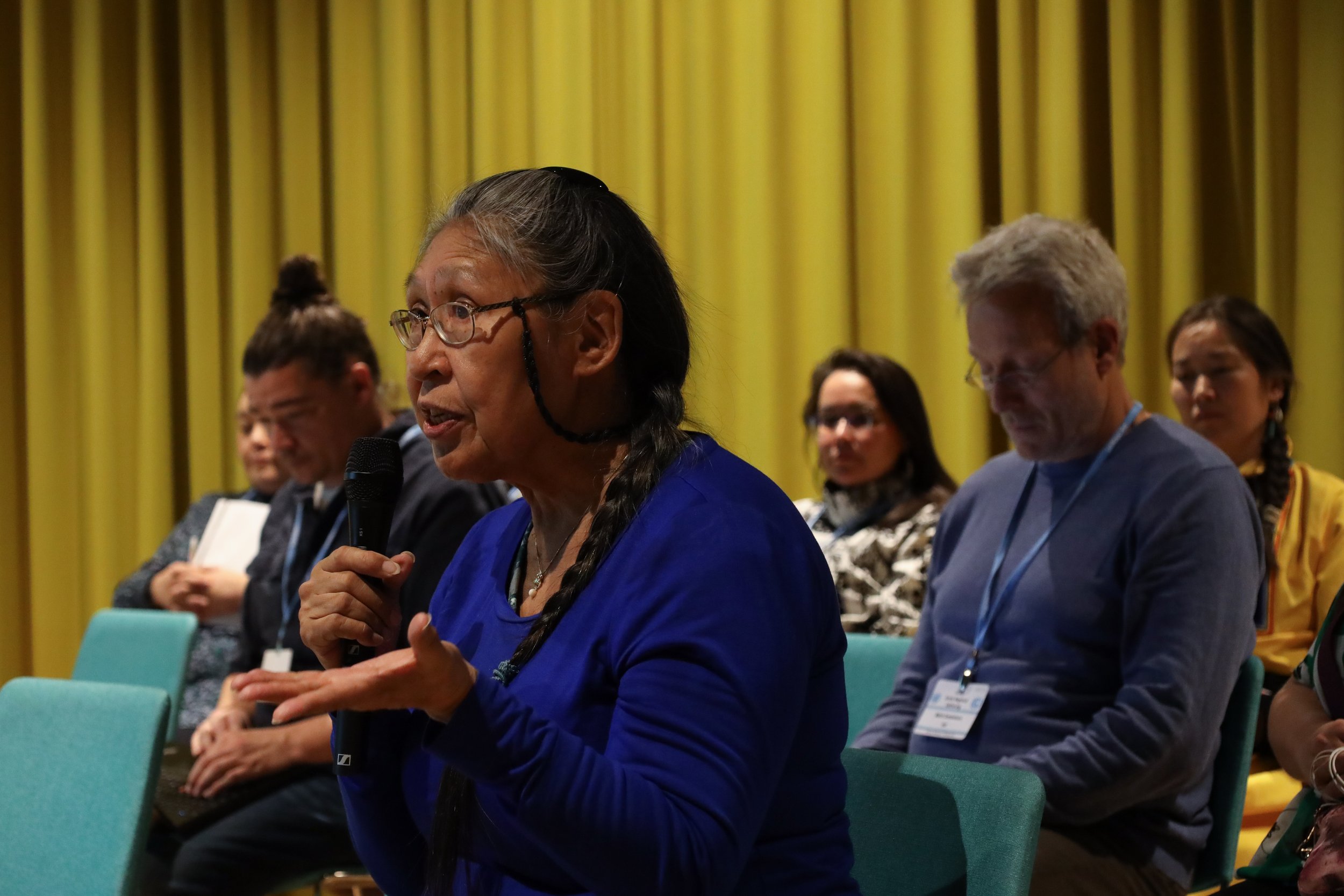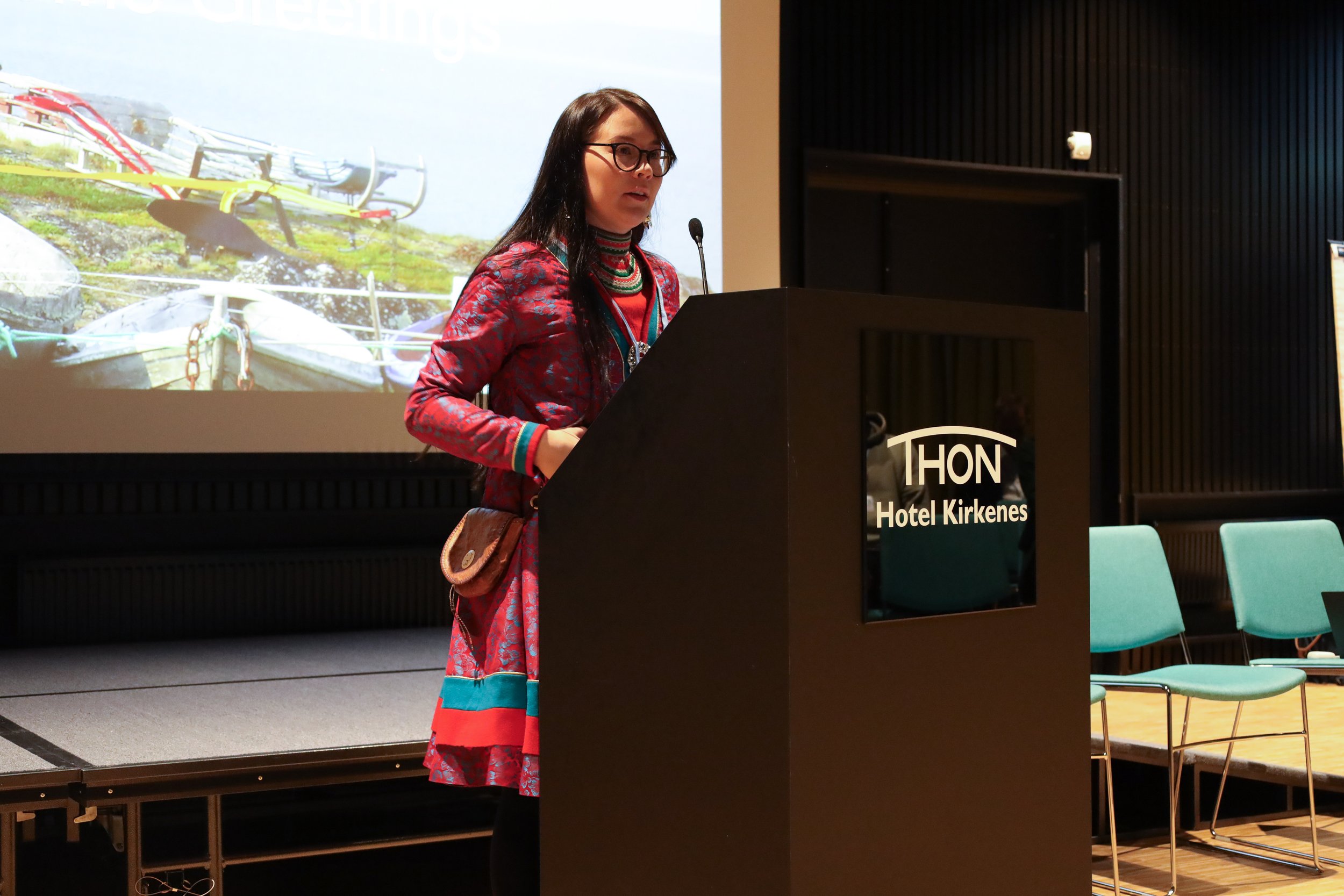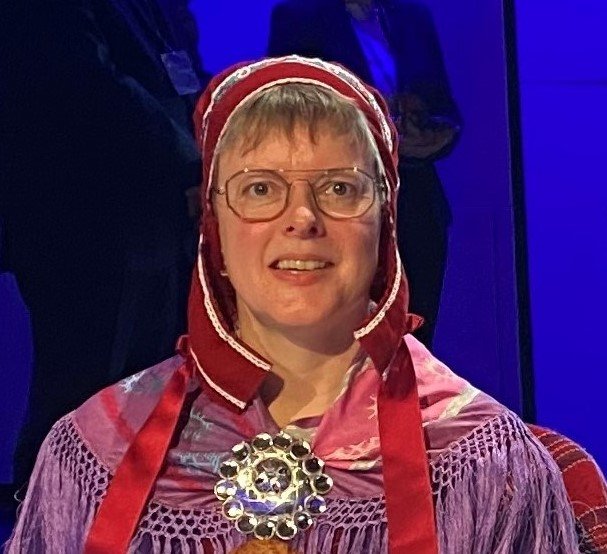Local Communities and Indigenous Peoples Platform (LCIPP) and Arctic Council Joint Regional Gathering
Last week the Saami Council together with Norway and the Sámi parliament in Norway hosted the Local Communities and Indigenous Peoples Platform (LCIPP) and Arctic Council Joint Regional Gathering in Girkonjárga - Kirkenes. The conference took place in Kirkenes from the 2nd to the 5th of October and brought together a diverse set of people, including Knowledge Holders and representatives from Arctic Indigenous Peoples organizations, governments, and NGOs within the Circumpolar Arctic.
In total there were 89 participants, with approximately 40 Knowledge Holders from Indigenous Peoples’ societies. The event focused on two key areas: discussions related to the Arctic Council Working Groups’ activities on climate change and the LCIPP, and are part of a mandated event under the LCIPP’s second three-year work plan.
The LCIPP, established under the United Nations Framework Convention on Climate Change (UNFCCC), is a dedicated platform for local communities and Indigenous Peoples to engage in climate decision-making, to discuss the impacts of climate change on our lives and the Arctic, to identify needs, and to reshape the global approach to nature and climate change. This event was intersected with an Arctic Regional Gathering which emphasized the importance of including the voices of Indigenous Peoples within the Circumpolar Arctic for high-level climate discussions.
The Working Groups of the Arctic Council, namely the Arctic Monitoring and Assessment Programme (AMAP) and the Conservation of Arctic Flora and Fauna (CAFF), gave detailed insights from their current assessments of the arctic climate, biodiversity, fauna and ecology, in addition to societal impacts and implications. In an era where the Arctic region faces unprecedented changes due to climate change, Indigenous Peoples hold a crucial role in climate mitigation and adaptation work, and the outcomes of the gathering will feed into these Working Groups as well as the UN Climate Convention.
Alongside the joint event, the Norwegian Chairship of the Arctic Council hosted a meeting with the six Permanent Participants. Discussions covered topics such as the implementation of the Norwegian Chairship's plans for 2023-2025, resumption of work at the Working Group level, and raising the priorities of the Permanent Participants in the Arctic Council's activities. The importance of multilateral people-to-people cooperation among Indigenous Peoples within the Arctic Council was also highlighted.
The Arctic Indigenous Peoples Organisations gave presentations on their work related to climate change. Among other things, the Saami Council presented our Climate Report and highlighted some of our recommendations. Inuit Circumpolar Council focused on loss and damages faced by Inuit communities due to the coastal erosion in Alaska. Both Gwich’in Council International and Arctic Athabaskan Council called for attention to wildfires which their communities have been devastated by, resulting in that several of the attending representatives had to evacuate from their lands during this autumn. RAIPON echoed the concerns about wildfires and highlighted eco-tourism as a way to make people stay in Indigenous communities and stay in contact with their culture and land, while the Aleut International Association focused on the importance of climate action on a local level.
The specific topics explored during this event were particularly centered around the cascading issues and challenges Indigenous Peoples in the Arctic face as a result of an increasingly changing climate. The Indigenous Knowledge Holders expressed concerns about the accelerating impacts of climate change on Indigenous Peoples and their traditional ways of life in the Arctic. They highlighted shifting, unpredictable and erratic seasons and weather patterns such as extreme snowfalls leading to losses in the form of reindeer calf fatalities and escalating emergency and feeding costs, the serious repercussions of melting glaciers and permafrost, warmer summers creating crises resulting in weaker animals and increased wildfires, and even worrisome alterations in the taste of traditional foods such as caribou, seals and arctic char. They also emphasized the importance of preserving the land, promoting actually sustainable science, and consulting Indigenous Peoples before decision-making in order to avoid harmful human right violations, in addition to passing down traditional knowledge to the next generation. This last point was further echoed by Indigenous youth, who specified that it is made all the more difficult by the fact that they are being forced to stand on the barricades for Indigenous Peoples’ rights rather than being out on the land learning from their elders and engaging with the traditional culture.
When discussing climate solutions, the Indigenous Knowledge Holders emphasised the collective responsibility of addressing climate change, and highlighting the importance of integrating diverse knowledge systems and perspectives for building resilience. They also underlined the importance of Indigenous practices that inherently balance with nature, co-production of knowledge, and multigenerational learning when creating climate mitigation and adaptation strategies and policies. The central role of storytelling in both preserving knowledge and fostering collaborations were also highlighted. Additionally, practical solutions such as cultural burning and conservation methods, and the need to recognize the Arctic's role as a vital carbon sink were discussed. They also promoted core principles like taking only what's needed and fostering a cooperative spirit.
The conference was further supplemented with discussions on the way forward in light of the contributions and presentations given by the different stakeholders participating in the conference.
Gunn-Britt Retter concluded the conference with the following closing remarks: “Our discussions and rich exchanges in Girkonjárga - Kirkenes will undoubtedly guide and shape our collective climate change initiatives moving forward. The collaborations formed here are but seeds; and as we return to our communities, it's up to us to nurture and grow these relationships. The LCIPP under the UNFCCC offers an inclusive space to share these outcomes. It is a platform to discuss the impacts of climate change on our lives and the Arctic, to identify needs, and to reshape the global approach to nature and climate change.
Nature is not external; it is within and around us. Our relationship with it, paired with our commitment to its well-being, forms the ultimate climate solution for the present and future.”
For more information:


